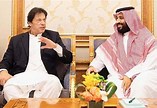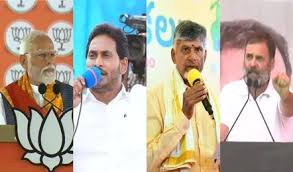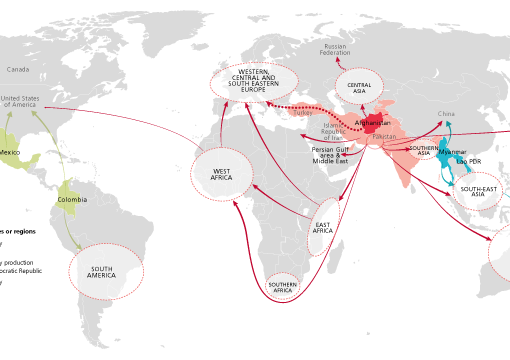Perhaps, Rawalpindi has come to the conclusion that it can no longer depend on the Saudis and hence it does not hurt to send a strong public message
by Prasad Nallapati, 12 August 2020
Foreign Minister Shah Mahmood Qureshi’s outburst against Saudi Arabia’s alleged non-cooperation in calling for a special meeting of the OIC Foreign Ministers on Kashmir and Pakistan’s desire to lead it manifests Islamabad’s frustration on not just the Kashmir issue but a host of other issues plaguing the Islamic nation.
“I am once again respectfully telling OIC (Organization of Islamic Countries) that a meeting of the Council of Foreign Ministers is our expectation. If you cannot convene it, then I’ll be compelled to ask Prime Minister Imran Khan to call a meeting of the Islamic countries that are ready to stand with us on the issue of Kashmir and support the oppressed Kashmiris.”
The fact that Qureshi’s veiled threats are not just a lonely burst but represent the voice of the Establishment can be proven by their validation by Foreign Ministry spokesperson. Neither Qureshi tried to backpedal them, nor the Prime Minister or the Army chief said anything. The Information Minister, who was chosen to respond to the media, did nothing to play down the remarks. Saudi Ambassador Nawaz Saeed al-Malkiy met the Army chief Gen. Qamar Javed Bajwa, the real power centre in the country, but nothing is said on what transpired.
The Pakistan Army has had a series of setbacks in its handling of relations with India. The latest in the series was India changing the provisions of the Art 370 and 35A of the Constitution to withdraw special status to Jammu and Kashmir state and bring the region under Central control for more effective integration. Sure enough, Pakistan army’s ability to create troubles there through its proxies dissipated. Although there are still some incidents of terrorism emanated from Pakistani citizens, they are more constrained now to do so. Stone pelters disappeared. Pressure from across the border on pro-Pakistani Hurriyat leaders, like Syed Ali Shah Geelani, wrecked them to resign.
Indian army’s `surgical strikes’ and Balakot air raids on terror camps inside Pakistan in response to Jaish-e-Mohammad (JeM) attacks rattled both the terror groups and Pakistani army. What mattered was not so much the extent of damage caused but silent endorsement by the international community, including majority of the Muslim world, of India’s right to do so. Expectedly, Pakistan’s expensive project to mobilize international opinion against India came to a naught as its voice has little credibility.
Islamabad currently has limited cards which it had earlier used to bluff its way to bounce back from difficult situations. They recently tossed up one such wild card of `delivering the Taliban’ to grab the US affection once again but it proved to be short lived with no tangent returns. Its economy is tanking, forcing it to live mostly on borrowed money. Ethnic fault lines have re-erupted with Baluchi and Sindhi youth making common cause against the Establishment for `forced disappearances’ and attempting to grab their resources without any consequent benefit to their people under the much touted multi-billion-dollar China-Pakistan Economic Corridor (CPEC).
Qureshi was only bluffing when he bragged about calling an alternate OIC meeting of Muslim countries supportive of Pakistan. The only other country that is willing to openly partner such an enterprise, against the wishes of Saudi Arabia, is Turkey. The other partner Dr. Mahathir Mohamad of Malaysia, who organized such a conference in Kuala Lumpur last year, has since lost the power. Prime Minister Imran khan himself had to cancel his trip to attend the conference at the last minute on being so advised by Riyadh. Qatar is a low-lying partner whose support lies more behind the scenes. Pakistan thus can muster just a couple of countries to its proposed enterprise.
Why then did he make such an empty boast knowing well that he is stepping into a dangerous vortex of the West Asia politics from where there is no way out. The `Arab Spring’ has brought to the fore latent Islamist forces that led to new alignments among the regional states. Saudi Arabia and its allies sought to restore status quo to maintain regional stability, while Turkey, under its belligerent Islamist President Recep Tayyip Erdogan, and Qatar backed the Muslim Brotherhood and other radical groups to challenge existing leaderships.
Saudi Arabia is fast changing its Wahhabi Islamist ideology under its young and boisterous Crown Prince Mohammed bin Salman (MbS), who is trying to present a more benign face of the Kingdom. The other sectoral battle between the Saudis and Shiite Iran has only intensified under MbS, who opened several fronts to cripple the Islamic republic and the militias backed by it around the region. Battle lines have thus been drawn for a triangular contest for supremacy.
Despite enjoying closest relations with the Gulf states, the Pakistani Establishment does not seem to have grasped the changing dynamics of the region. Saudi Arabia and the UAE have always treated Pakistan as a “junior” partner, which was ever willing to satisfy their needs, and in return they gave Islamabad a free hand to use various political and religious platforms, such as the OCI, WAMY etc, against its archrival, India. Now, its refusal to join Saudi military alliance against Iranian-backed Houthis in Yemen, and Its oft repeated refrains of playing a mediatory role between the Saudis on the one side and Turkey and Iran on the other, have gone beyond Riyadh’s tolerance levels.
If Qureshi and the military establishment think that they can force Saudi Arabia to deliver what Pakistan wants, they are perhaps too naïve. If he is positioning himself to impress the Army brass to install him in place of Imran Khan, he is closing off whatever limited chances of Pakistan bouncing back to the good books of the Saudis. Or perhaps, Rawalpindi has come to the conclusion that it can no longer depend on the Saudis and hence, it does not hurt to send a strong public message.
Pakistan may now be hoping to ride on the Chinese back as the latter is preparing for a long haul to challenge India on the Ladakh region of the Jammu and Kashmir and other border areas. China and Iran are also heading for a strategic relationship that Pakistan sees as an opportunity to strengthen their triangular cooperation as part of the CPEC that could also draw in the Central Asian Muslim nations. This sounds tempting but geo-politics do not always obey desired coordinates.
Pakistan may, therefore, take a more realistic view and re-assess cost-benefits of its shifting to another subservient partnership which may again prove to be less “iron-clad” than it is made to believe. It may also assess prospects of a more honourable relationship with its “twin-brother” India if it only shuns `use of terrorism’ as a means to pressure New Delhi. It is achievable and could bring more peace and prosperity to the two countries and the entire sub-continent. Just a change in mind-set can open up new opportunities.
(Prasad Nallapati is President of the Hyderabad-based think tank, the Centre for Asia-Africa Policy Research. He is a former Additional Secretary to the Govt of India)




